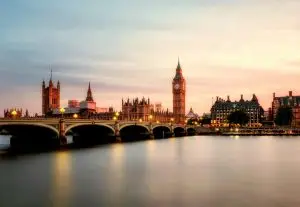The establishment of a new publicly owned clean energy company – Great British Energy (GB Energy) is central to the Labour Party’s plan for Government and offer to the electorate. In the first leaders’ debate on Tuesday night, Sir Keir Starmer sought to frame net zero as an opportunity to create green jobs, secure investment in communities and bolster energy security. The Party envisions GB Energy having a key role in achieving its ambitious net zero targets, and critically the manner in which these are achieved.
However, less than one month out from the election, there remain key unanswered questions about the new company, how it will operate and what it might emulate. In this article Brevia explores what we do and do not know about GB Energy, what it might mean for businesses, and its potential role in the UK energy system.
What We Know: The Basics
GB Energy will function as an independent entity with a corporate charter and an independent board, ensuring operational independence, with three priorities:
- Invest in leading-edge energy technologies.
- Co-invest in established energy technologies.
- Scale up municipal and community energy.[1]
GB energy will also absorb the functions of GB Nuclear to bolster the UK’s nuclear sector and will focus on strategic public investments to develop and scale new energy technologies.[2]
GB Energy will be headquartered in Scotland.[3] This is significant as Labour seeks to challenge the SNP’s recent electoral dominance in Scotland, and because cities like Aberdeen will be at the forefront of the transition from oil and gas to renewables. How this transition will be managed was a key point of differentiation between Scottish Labour, the SNP and Conservatives, with Scottish Labour leader Anas Sarwar MSP facing tough questions on the speed of his party’s decarbonisation plans and its impact on Scotland’s oil and gas sector.
The Labour Party has confirmed that GB energy will be funded by an initial £8.3 billion, with POLITICO reporting that this will include £3.3 billion in low-interest loans each year for communities for small-scale clean energy projects. The remaining £5 billion is expected to be used as investment capital in generation projects in established technologies like wind and solar, as well as emerging technologies such as hydrogen and tidal energy, with floating wind confirmed as the initial priority technology. [4]
For the Labour Party, GB Energy has become part of its response to a range of challenges. GB Energy is not just about delivering net zero but shielding UK households from unpredictable global energy prices caused by events such as Russia’s invasion of Ukraine, giving communities a stake in the energy transition and framed as supporting the UK’s energy security.
Publicly owned energy company or investment vehicle?
A key unanswered question is whether GB Energy will act as a publicly owned energy company, like France’s EDF or Sweden’s Vattenfall which own and operate assets, or an investment vehicle like the UK Infrastructure Bank, which co-invests with businesses in projects.
This week has not provided much clarity. During Tuesday’s TV debate, Keir Starmer referred to GB Energy as a publicly owned company that would ‘generate energy’, contradicting his comments made to BBC Scotland last week. It’s worth keeping in mind that its reach could even go beyond generation, with the Shadow Chancellor suggesting in her conference speech that GB Energy could also bid into competitive tenders for new grid construction.[5]
The attractiveness of setting up GB Energy as an investment vehicle is the speed of delivery and ability to build on previous precedent. A Labour Government could speed up the process of setting up GB Energy by restructuring existing institutions, such as the UK Infrastructure Bank.[6]
The advantage of it being a publicly owned energy company is the scale of benefit that could be delivered to the UK taxpayer, along with the longer-term potential of investing in renewable energy abroad. The clear downside to this is the time it would take to deliver, as well as potential complications over how it would interact with existing developers and energy market structures, such as CfDs.
The answer to this question is fundamental to how businesses could work with GB Energy and the Labour Party over the course of the next Parliament. The private sector has an opportunity to shape and focus GB Energy on investment barriers in the green transition, and it is critical that businesses consider the risks and opportunities posed by the varying options.
Cutting Through the Noise: What We Can Expect
Establishing GB Energy is one of Keir Starmer’s first six steps in government, meaning we can expect swift action should Labour win the election. While not confirmed by the party, the current expectation is that GB Energy will require primary legislation, almost certainly in the form of a new Energy Bill in the King’s Speech on 17 July.
Labour is seeking to fully decarbonise the electricity system by 2030. This does not provide a great deal of time to set up GB Energy and have it play an active role in delivering that target. However, prior to the next General Election (which will need to be held by 2029), the Party will want to demonstrate the role GB Energy is playing, what it is seeking to deliver, and how it is working with existing players in the energy system.
Conclusion: A Priority for Labour with Bold Ambitions
The lack of detail on GB Energy may appear daunting to those in the energy sector. With a plethora of options being on the table, it’s easy to get lost in the potential risks. However, businesses should be encouraged by Labour’s focus on GB Energy and its ambitions for the future. A proactive energy company which holds the attention of central Government presents exciting opportunities to remove barriers to growth and attract the private sector investment necessary to deliver Labour’s net zero ambitions.
At a minimum, we know that GB Energy will function as an investment vehicle. Organisations with an interest in this space should use the pre-election period to fine-tune their positioning on GB Energy, understanding the risks and opportunities it could present to them, and helping to shape a favourable delivery route.
BREVIA ENERGY PROVIDES STRAIGHTFORWARD PUBLIC AFFAIRS AND PUBLIC RELATIONS SUPPORT TO ORGANISATIONS OPERATING IN THE UK ENERGY SECTOR.
Discover how Brevia Energy can help you and your organisation by visiting: www.brevia.co.uk/sectors/energy/. You can also contact the Brevia Energy Team on 020 7091 1650 or email contact@brevia.co.uk
Notes
[1] ‘Rachel Reeves Mais Lecture 2024’, The Labour Party, 19 March 2024, Link
[2] The Labour Party, ‘MAKE BRITAIN A CLEAN ENERGY SUPERPOWER’, June 2023, Link
[3] The Labour Party, ‘Keir Starmer speaking at the launch of Labour’s six steps in Glasgow’, 31 May 2024, Link
[4] Politico, ‘Labour promised a state-owned energy company. Can it work?’, 29 May 2024, Link
[5] Rachel Reeves MP, ‘Rachel Reeves speech at Labour conference’, 9 October 2023, Link
[6] Politico, ‘Labour promised a state-owned energy company. Can it work?’, 29 May 2024, Link




